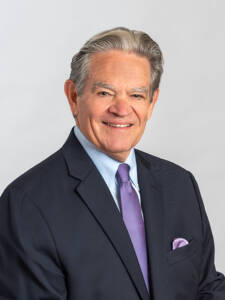Publications
Editor’s note: Charles P. Bauer, one of New Hampshire’s top trial attorneys, shares some cross-examination principles to keep in mind.
1. Before trial, prepare for cross-examination; at trial, decide whether you should cross-exam — be prepared.
2. Be civil and dignified in your questions and demeanor with the witness before the Jury and Judge — take the “high road” on most all endeavors.
3. Have two goals: First, try to have witness provide favorable testimony or agree with your facts; Second, if needed, discredit the testimony or the witness, if absolutely necessary — be careful — generally play it safe.
a. favorable testimony — what in direct was helpful?; what in a deposition or other statement was helpful? — draw it out
b. discredit testimony as unreliable — try for 3 minor inconsistencies — observation, perception, memory
c. discredit witness if necessary — i.e. bias, motive, interest — most never a liar — just not trustworthy
d. impeachment the witness — trial testimony vs. other statements
i. prior testimony
ii. written statement
iii. oral statement
iv. pleading
v. omissions
vi. criminal convictions
vii. treaties
4. Have a plan — what is the theory of your case and what facts do you need from this witness? There should be about 3 to 4 essential points to establish from the witness on cross — no more. No shotgun approach.
5. Don’t repeat the answer from direct.
6. Know the answer before you ask the question.
7. Most always use leading questions — limited exceptions.
8. Demonstrate your grasp of the facts to the witness and jury in your leading questions.
9. Testify for the witness and have her agree with your statement.
10. Limit and control the testimony and witness — don’t let the witness explain.
11. Don’t argue with the witness.
12. Use short clear questions.
13. Proceed carefully and in small steps — do not leap with one ultimate question.
14. Listen to the direct exam and cross exam answers and be ready to follow them.
15. Don’t ask one question too many — save it for closing argument.
16. If the witness has not hurt your case — no questions.
17. If you can not contradict or impeach the witness or testimony — be nice and give a cursory or apparent cross and sit down.
18. Be confident — know where you are & where your documents are in the courtroom.
19. Be natural — formal/casual/alternate.
20. Have a poker face when needed.
21. Use discovery — deposition answers, prior statements, and other witness testimony to cross.
22. Special problems:
a. evasive witness
b. explaining witness
c. arguing witness
d. opposing counsel
e. expert witness
Charlie Bauer concentrates his litigation practice in the areas of civil rights litigation, private mediation and arbitration, employment litigation, and other complex civil litigation in federal and state courts and administrative agencies.
He is a fellow in the American College of Trial Lawyers (ACTL) and AV-rated in Martindale-Hubbell.
Charlie is also selected for inclusion in The Best Lawyers in America® in the fields of Alternative Dispute Resolution, Civil Rights, and Personal Injury; and listed by Super Lawyers in the areas of Employment and Labor, Alternative Dispute Resolution, and Civil Rights/First Amendment.
* He is licensed to practice in New Hampshire.
